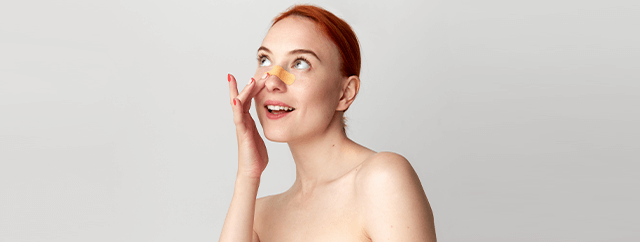Post Date: 10/4/2023

Anxiety before rhinoplasty surgery is quite natural and is commonly referred to as preoperative fear, or anxiety.
Preoperative rhinoplasty anxiety, which can also be seen in other operations, refers to feelings of uneasiness, tension, or fear you experience before undergoing a surgical procedure. This condition generally occurs in the pre-medical period, sometimes starting days or weeks before the procedure, and can be triggered by various factors such as your anticipation of pain, fear of complications, concerns about the outcome, or the unfamiliarity of the surgical environment.
You can visit the clinic of Prof. Dr. Selçuk İnanlı, one of the best rhinoplasty specialists in Turkey, and tell him your expectations, listen to your needs, and relieve all your anxieties before your nose surgery.
Anxiety before your nose surgery is a normal experience and can manifest itself with both physical and psychological symptoms such as:
It is important that all your concerns and fears are taken into account before undergoing rhinoplasty, as high levels of anxiety can have negative effects on the operation specifically and on your overall health. Excessive worry can potentially increase your perception of pain, delay your recovery, and increase the risk of post-operative complications.
The most successful rhinoplasty specialists usually take steps to manage and alleviate such concerns in their patients. This may include providing information about the procedure, offering emotional support, explaining what you will do for pain management, and prescribing anti-anxiety medications when necessary. Techniques such as deep breathing exercises, meditation, and guided imagery are among the activities that can be recommended to you during this period.
It is also very important to understand the causes of concerns before the surgical procedure in order to eliminate them. You definitely have questions such as how many hours rhinoplasty surgery takes or whether rhinoplasty is painful. “Nose job” is an operation that can take an average of 4-5 hours and you will not feel pain because it is performed under general anesthesia. Learning these will make you feel good. However, it cannot be guaranteed that your concerns will disappear completely.
On the other hand, you can have rhinoplasty when you are not aesthetically satisfied with your nose, or you can be a candidate for this procedure to restore its functionality. This is even more important than your aesthetic goals. It is also possible that you realize that functionally your nose is not in good condition. This may mean that you may overestimate the surgery.
Your nose plays a vital role in the respiratory system by filtering, moisturizing, and warming the air you breathe. Surgeries such as rhinoplasty or septoplasty can affect your ability to breathe through your nose. Here, too, the specialist's experience and skill play a role. While improvements in nasal airflow can improve your respiratory function, complications or incorrect surgical techniques can cause difficulty breathing. Knowing the gains you will get from this surgery is an important factor that will make you comfortable in the process.
Knowing the gains you will achieve when you have rhinoplasty may help to reduce or even eliminate the anxieties and fears you experience in the preoperative process. Your nostrils contribute to the resonance of your voice. Surgeries that change the structure of this area, such as nose job, can positively affect your voice quality or the way you pronounce certain sounds.
Your sinuses are air-filled cavities in your skull connected to your nostrils. If you have problems before surgery, it is possible to improve sinus drainage and function with rhinoplasty. In addition, some other nasal surgeries, such as functional endoscopic sinus surgery (FESS), are specifically designed to directly address discomfort in this area.
Your nostrils are your first line of defense against allergens and irritants in the air. Changes to your nasal structure can also improve your susceptibility to allergies or your ability to filter airborne particles. Changes in the size and shape of this organ can improve the aesthetics of your face. This makes an important contribution to your social life.
Changes in your septum and improvements in your nasal structure can also improve the patient's sense of smell. You may not have had this complaint before because you may be living without realizing it. Rhinoplasty can restore your sense of smell, which you have lost due to structural problems.
After undergoing rhinoplasty surgery to reshape or reconstruct your nose, you may have various concerns and thoughts for a while during your recovery process. It is important to remember that nose job is a surgical procedure, mild discomfort and temporary side effects may occur during the healing process, and proper care and patience play a major role in achieving lasting results.
Some patients report temporary changes in their ability to breathe through their nose. If you experience this, it is usually due to edema and will improve as your recovery progresses. In fact, for many candidates who experienced breathing difficulties before the procedure, rhinoplasty can be considered one of the remedies for better breathing.
On the other hand, it is very important that you do not miss regular examinations on the dates determined by your specialist. In this way, you can see your progress, relieve your concerns, and ensure a healthy healing process. Your specialist also guides you on when you can resume your routine habits and activities, such as your exercises or wearing glasses. Have a consultation with Prof. Dr Selçuk İnanlı now, who performs the best rhinoplasty in Istanbul, and do not postpone your dreams. You can reach us from our contact information.